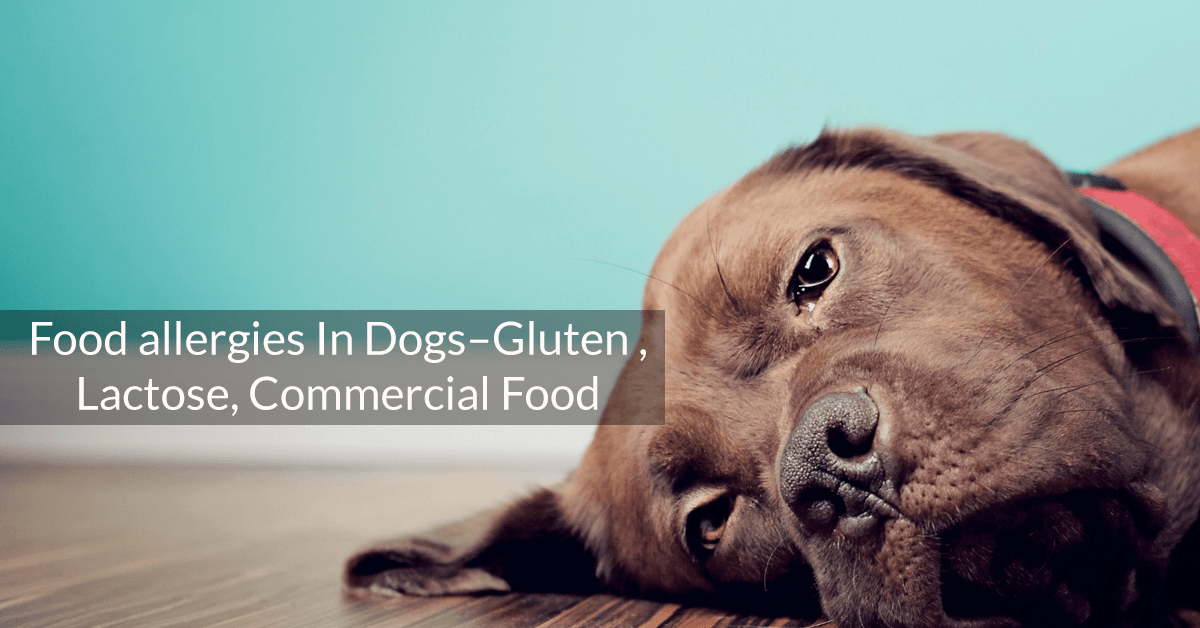Food Allergies in Dogs – Gluten, Lactose, Commercial food
For a few days, Susie’s dog was scratching his body all day. A week before, the scratching increased, and the dog went frenzy crying out frequently at night. Early in the morning, Susie decided to postpone her busy schedule one day and visited the vet with her dog.
Susie could not come to terms with the dog’s red, bleeding skin. After taking down the two-year-old dog’s history and after a thorough check-up, the vet confirmed it was mostly a food allergy for the dog.
She was astonished that food allergy is often not limited to non-processed foods, for Susie always fed her dog processed food.
If you are right now having a scratching dog around you somewhere, make sure you find out if a food allergy is a reason behind the itchy skin. If your dog has flatulence or is vomiting, make sure you take them to a vet. Other subtle symptoms could be rapid weight loss, energy loss and aggression sometimes.
To make it simple, when the body overreacts to substances it would typically tolerate, it produces antibodies that give rise to an allergic reaction.
Well, here are answers to a few questions that crop up as soon as you find out about your dog’s condition. A study estimated that almost 20-30% per cent of all allergic reactions result from a food allergy in canines. But the problem is, there is no sure shot way to find out what food causes the allergy, except taking up a lengthy testing process.
Here are a few questions that we at My Furries think could help you immensely when in doubt.
- What are those foods which can bring up an allergic reaction?
Food allergy in dogs could be from anything but proteinaceous diets, like beef, lamb, chicken, and other protein forms often are a potent cause. It even arises from dairy (lactose), wheat (gluten), processed food and many more such food varieties. Primarily the dog might show allergic reactions early in life.
- How to come to a proper diagnosis for food allergy?
Before moving onto the diagnosis, one must know that 70% of the dog’s immune system is located in gut-associated lymphoid tissue. Due to it, diagnosis is challenging to make. There are no sure shot tests.
The only way to determine if your dog’s allergic reaction is a response to some food is by following the “dietary elimination trial.”
- How is the test performed?
Your dog needs to be put on a diet that you might have to purchase from the vet or if you can prepare at home.
To prepare a hypoallergenic (low on allergens) meal at home, you must carefully select the food with one new type of carbohydrate and protein (with necessary fats, vitamins and minerals).
You could also try a hydrolysed diet where the proteins are broken down into small units that can escape the immune system.
This newly formed recipe has to be given to the dog for a month. Once the condition of your dog improves, you can put them back on your regular diet. Expectedly, your dog might experience a sudden relapse of the disease. Switching to the trimmed diet is required at this time and needs to be followed till you’re ready to test your pet on each ingredient you feed it regularly.
- What triggers an allergic reaction in your dog?
Most pet owners are astounded to find out that their canines are allergic to animal proteins more than plant proteins.
Grains are uncommon causes of food allergy, but yes, like humans, pets are often allergic to lactose and gluten.
Suppose your dog has a history of surgery or viral infections, severe emotional distress, childbirth and pregnancy. In such cases, there could be a high chance that your dog’s allergy is predominantly the result of it.
Allergic reactions often are more pronounced when your dog has damage in the outer layers of its gut.
At My Furries, our constant effort is to help your pet live better. There is no such joy as meeting a healthy family where the pets, too, are all healthy. Food allergies can be easily controlled, and only if you can pay attention to what your dog is trying to tell you, you can easily manage the condition.
Dogs are just like us, so treat them like us and care for them as you would care for your young ones. Subscribe to My Furries to get such precious tips.



